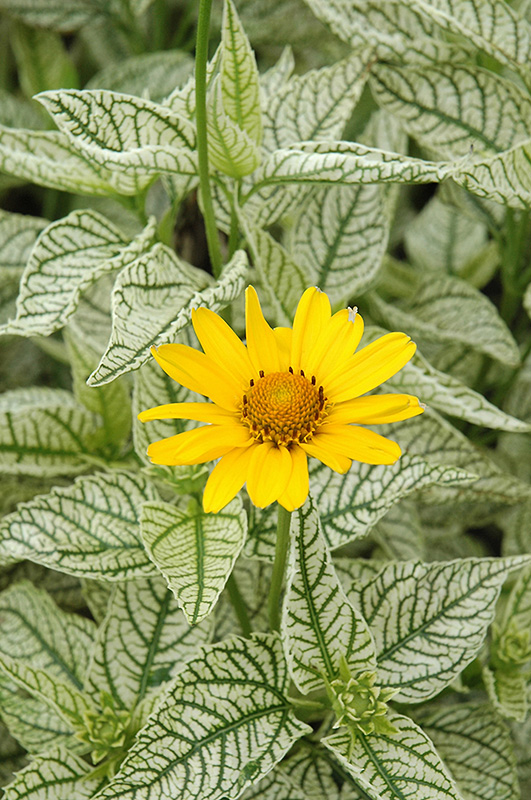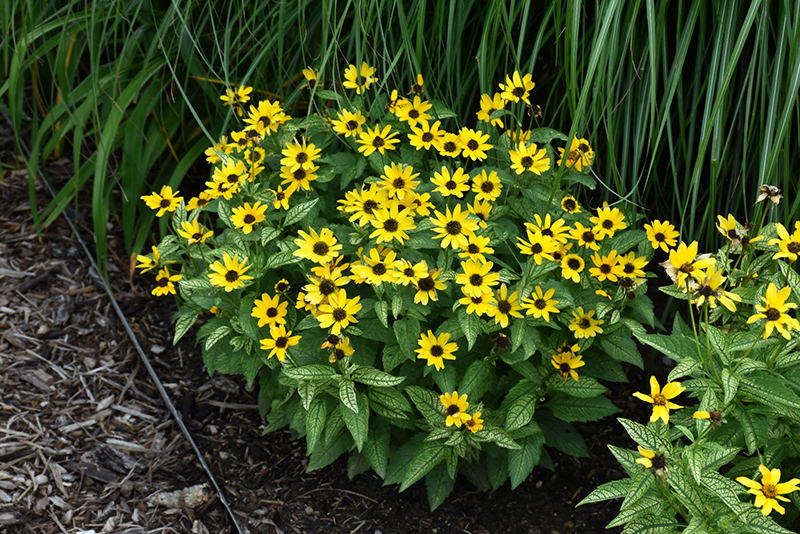>> Home
Sunburst False Sunflower
Heliopsis helianthoides 'Sunburst'
Height: 30 inches
Spacing: 20 inches
Sunlight:
![]()
![]()
Hardiness Zone: 4a
Other Names: Oxeye Daisy, Perennial Sunflower
Description:
The mounds of variegated foliage are quite beautiful even when this variety is not in bloom; bright yellow flowers appear in summer and fall; may produce non-variegated seedlings; stunning in containers or along borders
Ornamental Features
Sunburst False Sunflower has masses of beautiful yellow daisy flowers with brown eyes at the ends of the stems from early summer to mid fall, which are most effective when planted in groupings. The flowers are excellent for cutting. Its serrated oval leaves remain grayish green in color with distinctive dark green veins throughout the season.
Landscape Attributes
Sunburst False Sunflower is an herbaceous perennial with an upright spreading habit of growth. Its medium texture blends into the garden, but can always be balanced by a couple of finer or coarser plants for an effective composition.
This is a relatively low maintenance plant, and is best cleaned up in early spring before it resumes active growth for the season. It is a good choice for attracting butterflies to your yard. It has no significant negative characteristics.
Sunburst False Sunflower is recommended for the following landscape applications;
- Mass Planting
- General Garden Use
- Naturalizing And Woodland Gardens
Planting & Growing
Sunburst False Sunflower will grow to be about 24 inches tall at maturity, with a spread of 24 inches. When grown in masses or used as a bedding plant, individual plants should be spaced approximately 20 inches apart. It tends to be leggy, with a typical clearance of 1 foot from the ground, and should be underplanted with lower-growing perennials. The flower stalks can be weak and so it may require staking in exposed sites or excessively rich soils. It grows at a fast rate, and under ideal conditions can be expected to live for approximately 10 years. As an herbaceous perennial, this plant will usually die back to the crown each winter, and will regrow from the base each spring. Be careful not to disturb the crown in late winter when it may not be readily seen!
This plant does best in full sun to partial shade. It is very adaptable to both dry and moist locations, and should do just fine under typical garden conditions. It is not particular as to soil type or pH. It is highly tolerant of urban pollution and will even thrive in inner city environments. This is a selection of a native North American species. It can be propagated by division; however, as a cultivated variety, be aware that it may be subject to certain restrictions or prohibitions on propagation.

